Description
The Polish high energy physics (HEP) community fully recognizes the urgent need to host at CERN a flagship project implementing a broad, long-term, and comprehensive vision of particle physics research and pursuing technological advances. Thus, we give preference and declare willingness to actively engage and participate in every aspect of the FCC project (both FCC-ee and FCC-hh), particularly accelerator development, detector construction, theoretical calculations, and physics analyses. As the $e^+e^−$ Higgs Factory is the top priority for our field, the proposal to build a linear collider facility at CERN, opening up complementary physics prospects, should be considered as the second option.
Polish teams declare strong support and are fully committed to contribute to the full exploitation of all aspects of the physics potential of the LHC and the HL-LHC programmes. To ensure the long-term development of particle physics, we also support the continuation of the high-field magnet research programme, as well as investigating other scenarios including, in particular, linear acceleration techniques and new acceleration technologies such as plasma acceleration, the muon collider and Gamma Factory. In addition, CERN should continue to provide support to fixed-target programmes at SPS as well as other non-collider and non-accelerator experiments at CERN. Participation in major projects conducted in and outside Europe should also be fostered.
Education, communication, and outreach of particle physics are of paramount importance for the future of our field. An increased effort coordinated at the European level and resources allocated in all Member States are essential to effectively support future large-scale particle physics projects.
